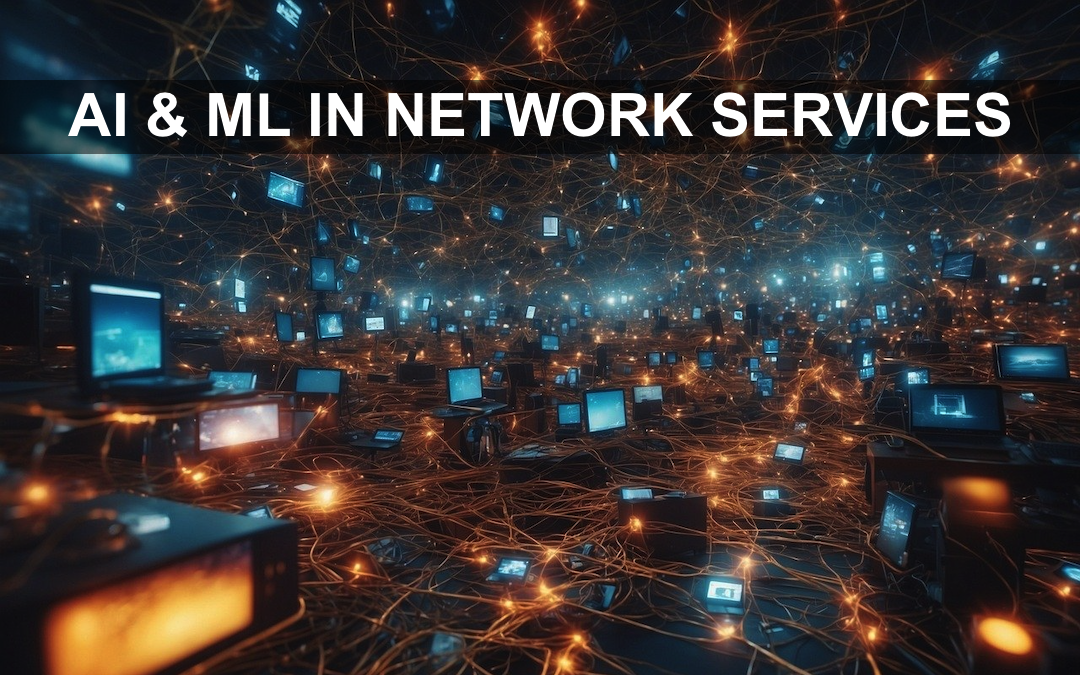
Artificial Intelligence (AI) and Machine Learning (ML) have evolved beyond mere buzzwords in today’s tech-driven landscape. These technologies are revolutionizing industries and transforming network management and optimization. By ensuring smooth internet connectivity and safeguarding against cyber threats, AI and ML have become essential components of modern network services. Let’s explore how these advancements are reshaping network management, managed network services, and intranet performance.
Understanding Network Management
Network management encompasses a broad range of activities, tools, and processes designed to administer, operate, and maintain network infrastructure. This includes monitoring network performance, ensuring security, and managing network configurations. Traditional network management often faces challenges such as manual configuration, slow response times to issues, and limited scalability.
The Emergence of AI in Network Services
AI's journey into network services began with basic automation tasks. Early applications focused on simple tasks like traffic routing and basic troubleshooting. However, as AI technologies evolved, their capabilities expanded, allowing for more complex and impactful applications in network management.
Machine Learning: The Game Changer
Machine Learning, a subset of AI, involves training algorithms on large datasets to recognize patterns and make decisions. In network services, ML plays a crucial role in predictive analytics, anomaly detection, and automated responses. By learning from historical data, ML algorithms can predict potential network failures and proactively address issues, enhancing overall network reliability.
AI and Network Management: A Perfect Match
One of the most significant benefits of integrating AI into network management is predictive maintenance. AI algorithms can analyze data from network devices to predict potential failures before they occur, allowing for timely interventions. Additionally, AI can automate network configurations, reducing the need for manual interventions and minimizing human errors.
Managed Network Services and AI
Managed network services involve outsourcing network management tasks to specialized providers. With AI integration, these services become even more efficient and effective. AI-driven managed network services can offer real-time monitoring, rapid incident response, and continuous optimization, ensuring that networks run smoothly and securely.
Enhancing Intranet Performance with AI
Intranets are vital for internal communication and collaboration within organizations. AI can significantly enhance intranet performance by optimizing data flow, ensuring fast access to resources, and personalizing content delivery based on user behavior. This leads to increased productivity and user satisfaction.
AI in Network Security
Network security is a critical concern in this day and age. AI enhances network security by identifying and mitigating threats in real time. AI-powered systems can detect unusual patterns and behaviors that may indicate cyber-attacks, allowing for immediate action to protect sensitive data.
Challenges in Implementing AI in Network Services
While AI offers numerous benefits, implementing it in network services is not without challenges. Technological barriers such as compatibility with existing infrastructure and the need for significant computational power can pose hurdles. Additionally, the cost of AI solutions and the need for skilled personnel to manage them are important considerations.
Use case of AI in Network Services
Several organizations have successfully integrated AI into their network services. For instance, telecom companies use AI to optimize network performance and enhance customer experiences. These success stories highlight the potential of AI to revolutionize network management and provide valuable insights into best practices.
Future Trends in AI and Network Services
The future of AI in network services looks promising, with emerging technologies such as 5G and edge computing poised to further enhance AI capabilities. Predictions for the next decade include more autonomous networks, improved AI-driven security measures, and increased integration of AI in everyday network operations.
The Role of Human Expertise
Despite AI's advancements, human expertise remains crucial. AI should be seen as a tool that complements human skills rather than a replacement. Skilled network professionals are essential for interpreting AI insights, making strategic decisions, and ensuring that AI systems function correctly.
 Frequently Asked Questions
Frequently Asked Questions
AI helps automate and optimize network management tasks, including predictive maintenance, automated configurations, and real-time monitoring.
Machine Learning enhances network services by analyzing data to predict failures, optimize traffic, and detect anomalies, leading to improved reliability and performance.
Managed network services with AI integration offer real-time monitoring, rapid incident response, continuous optimization, and enhanced security, ensuring smooth and secure network operations.
AI optimizes intranet performance by managing data flow, ensuring fast access to resources, and personalizing content delivery based on user behavior, leading to improved productivity and user satisfaction.
Future trends include the integration of 5G and edge computing, more autonomous networks, advanced AI-driven security measures, and increased AI applications in everyday network operations.
Share this post
Leave a comment
All comments are moderated. Spammy and bot submitted comments are deleted. Please submit the comments that are helpful to others, and we'll approve your comments. A comment that includes outbound link will only be approved if the content is relevant to the topic, and has some value to our readers.

Comments (0)
No comment